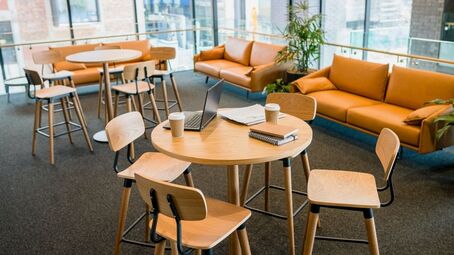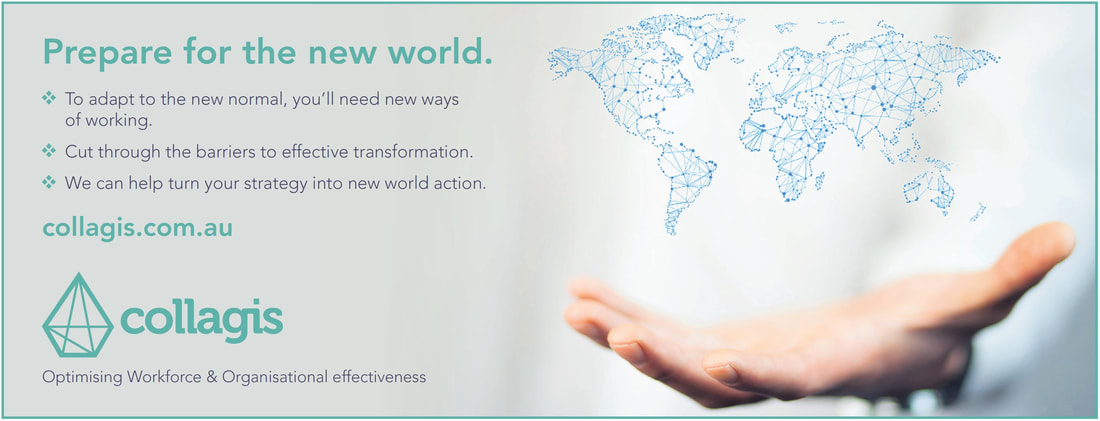|
Sydney, Australia — April 5, 2024
Collagis, a leading strategy consulting company based in Australia, is thrilled to announce the official launch of Logicus.AI, our cutting-edge AI strategy and design consultancy. Logicus.AI is named after Homotechnologicus, symbolizing the next phase in human evolution where people and technology converge for exponential outcomes. About Logicus.AI: Logicus.AI, as the AI practice of Collagis, is committed to helping our clients understand new paradigms and build strategies that unlock value. We recognise that we are entering a world where AI is no longer a distant concept but an integral part of business transformation. Logicus.AI empowers enterprises to embrace this technology while keeping their people and customers at the forefront. Our Approach: At Logicus.AI, we focus on delivering value. Our approach involves:
Why Logicus.AI?
Get in Touch: Whether you’re just beginning your AI journey or looking to enhance existing initiatives, Logicus.AI is here to guide you. Visit our website at www.logicus.ai to explore our services and connect with our experts. Join us as we embark on this exciting journey into the future of AI. Logicus.AI — Where Intelligence Meets Imagination! 🚀 Email: [email protected]
0 Comments
When & should we go back to the office?COVID-19 has accelerated the transition to remote working, forcing companies to adapt or die. Those companies not re-imagining the way they do business in a digital world, will not find a place in this new reality. The office, customer events, the boardroom and the commute have all changed forever.
As with all things, there are pros and cons of this new way of working, prompting many to ask not when should we go back, but if we should? Here’s a quick synopsis of how the argument is currently shaping up: The Highs:
Enterprises are compelled to accelerate investment in contactless technology as well as re-engineer processes for the digital world. Whilst before it was a customer expectation now it is a customer necessity. Those that are doing it well are mindful to transform in the move to digital, not just shift and lift, to improve the outcome from the digital experience for both the business and the customer. The Lows:
As the effects of the pandemic continue to change the way we work forever, putting people at the heart of what we do today is even more crucial. Whilst we move to a digital, always on environment, we need to find new ways to build human connections and provide new tools and processes that allow people to continue to perform at their best – efficiently and effectively in the new world. Links to reference Hot Desking The Psychological Impact of Hot Desking https://www.opensourcedworkplace.com/news/psychological-impact-of-hot-desking#:~:text=Positive%20Psychological%20Impact%20of%20Hot,and%20communication%20in%20the%20workplace.&text=%2D%20Can%20lead%20to%20quicker%20employee,with%20employees%20outside%20their%20team Hot desking affects wellbeing for eight in 10 office workers https://www.personneltoday.com/hr/hot-desking-affects-wellbeing-for-eight-in-10-office-workers/ Working from home Working From Home Increases Productivity https://www.businessnewsdaily.com/15259-working-from-home-more-productive.html#:~:text=The%20study%20found%20that%20working,of%20their%20work%2Dlife%20balance Why working from home is bad for productivity https://www.smh.com.au/business/small-business/why-working-from-home-is-bad-for-productivity-20200618-p553wn.html Australians more productive working from home https://ia.acs.org.au/article/2020/australians-more-productive-working-from-home-.html Research: Knowledge Workers Are More Productive from Home https://hbr.org/2020/08/research-knowledge-workers-are-more-productive-from-home Connecting with Customers in a COVID world Connecting with customers in times of crisis (McKinsey) https://www.mckinsey.com/business-functions/marketing-and-sales/our-insights/connecting-with-customers-in-times-of-crisis# 4 Ways to Reconfigure Your Sales Strategy During the Pandemic (HBR) https://hbr.org/2020/10/4-ways-to-reconfigure-your-sales-strategy-during-the-pandemic Eight ways to keep up with your customers during and after COVID-19 https://www.ey.com/en_gl/consumer-products-retail/changing-customer-behavior-growth-strategy
As seen in the Australian Financial Review The “new normal” of work is more a work in progress than a done deal but there’s no doubt that the momentum for change is unstoppable. A survey of 2,500 “working professionals” by recruitment firm Hays in November found that 61 per cent believe that a hybrid working model – part-remote and part-office working – is the most productive. Hays managing director Nick Deligiannis says the rapid shift to working from home necessitated by the lockdown and social distancing requirements established that “a large percentage of the workforce can work productively and successfully from home”. Hays research has also discovered that 47 per cent of employers, noting that productivity and business continuity were not adversely affected by having employees working remotely, are open to retaining working from home as part of their workplace mix. For many employees, according to Hays, overall performance, job satisfaction and work-life balance improved as less time was spent commuting or dealing with the distractions of office working. The challenge for employers as the economy reopens is to strike a balance between the work preferences of employees and the needs of the organisation. This is particularly a consideration for business leaders who believe that having staff working in a central office has cultural, creativity and collaboration benefits. “Employers are looking to the future and how they and their staff can benefit most effectively from this new way of technology-enabled working,’’ Deligiannis says. ‘‘Organisations everywhere will be going through this process ... [A] hybrid working model could be the ideal middle ground that allows employees to work flexibly on certain days of the week then come together with colleagues in a central workplace on others.” The boon to employee productivity and job satisfaction has been one of the big surprises of what has been widely dubbed “the great working from-home experiment”. A survey of 2800 knowledge workers in the UK, the US, Canada and Australia found that Australians were more productive working from home than their overseas peers. The survey by business transformation and managed services company Adaptavist found that 85 per cent of Australians, compared with the global average of 82 per cent, reported being equally or more productive when working from home. One-third of respondents said they were more productive than being at the office. But there were also some downsides to digitally-enabled working from home: one-third of Australian respondents reported stress arising from being “always on”. “An overnight transition has been forced upon the business world and companies have had to rise to the challenge by doing whatever seems to work immediately,” Adaptavist CEO Simon Haighton-Williams told the Australian Computer Society’s Information Age. “Now it’s time to reflect and analyse this, to see what positive patterns have arisen that we need to reinforce and what negative patterns we see that need to be changed.” Paul Ventura, managing director of management consulting firm Collagis, which specialises in workforce and organisational effectiveness, says “everybody is trying to get their head around what the new reality is going to look like”. “I don’t think there’s been a bigger or more profound adjustment, certainly not since the industrial revolution,” Ventura says. “What’s happening now has been possible for a long time in terms of available technology but what’s changed is the mindset around the workplace and employee wellbeing.” Ventura says the “nature of work” has changed and “remote working is here, and here to stay”. “For many workers the commute will no longer be part of their daily life. For them, work has changed from somewhere you go to something that you do.” While most employers are satisfied that the working-from-home experiment has been successful, that recognition is just the beginning of the business transformation that needs to occur as the economy reopens. “Dealing with change, navigating the uncertainty and striking the right balance between the benefits of a flexible workplace and the needs of the organisation are the challenges that now face businesses,” Ventura says. “The working-from-home experience has created the momentum for change but organisations can’t afford to be too aggressive in pursuing new ways of working. “Changes have to be balanced, reflecting the needs of employees, the needs of the business and the needs of the customer.” For many organisations the transformations they embark on will not be limited to the workplace. “There will be opportunities to grow and expand that weren’t there previously. Equally, products and services that were a solid basis for growth in the past may no longer be relevant or sustainable or may be subject to supply-chain disruptions,” Ventura says. “Some organisations will need to consider a change of business model.” Although questions about the future shape of organisations will be more complex for larger organisations, Ventura cautions that “fundamental change is important whatever the size of the organisation”. The good news, he says, is that whatever form the “new normal” takes, the end result will be “more efficient and more productive” businesses. Find out if you are new world ready? Register now for a free new world health check
|
|||||||||
CUSTOMER SUPPORT |
FOLLOW US |
COLLAGIS PTY LTDLevel 9, Nishi
2 Phillip Law St NewActon ACT 2601 PO Box 40 Oyster Bay NSW 2225 Tel: +61 2 6243 3635 |
Copyright © Collagis 2015
All Rights Reserved
All Rights Reserved





